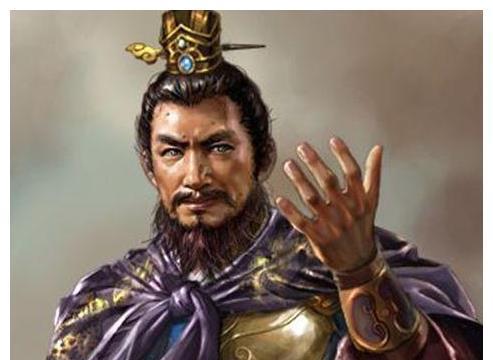During the Five Hu and Sixteen Kingdoms period, the Eastern Jin Dynasty was in a quiet corner, and the imperial power was declining day by day. The chancellor Huan Wen, on the other hand, was heavily armed and ambitious, intending to build up his merits by recovering lost territory in order to increase his prestige.

Looking around the Eastern Jin Dynasty, the Later Zhao and other states in the north were quite powerful, only the Chenghan regime in Shudi had a significant decline, and its emperor Li Shi was even more absurd, so Huan Wen chose the target of the crusade as Chenghan.
Yuan Qiao, a strategist who was deeply trusted by Huan Wen, strongly agreed with this and suggested that Huan Wen personally lead 10,000 elite troops to advance quickly and attack Chengdu directly. Huan Wen followed Yuan Qiao's advice and, without the consent of the imperial court, led an army westward in November of the second year of Yonghe (346). When the imperial court received the news, it was worried, and the ministers all believed that Huan Wen had too few troops and went deep into the dangerous and remote Shu land, and this expedition would undoubtedly be defeated.
Moreover, on the side of the Han Dynasty, Emperor Li Shi ignored political affairs, and the whole country was like a scattered sand, and it was difficult to organize effective resistance. Therefore, Huan Wen was overwhelmed by the momentum along the way, winning consecutive battles, and the march was very smooth, and in March of the third year of Yonghe (347), he entered the city of Chengdu.
Huan Wen's troops approached the city, and Li Shi finally panicked, and immediately ordered most of the troops in the country to be assembled and prepared for a decisive battle with Huan Wen.
In this battle, the Chenghan army had an absolute superiority in terms of troop strength, far more numerous than the Jin army, and it was related to survival, and it was bound to do its best. Huan Wen, a man with the personality of a gambler, was not afraid at all, and immediately set up a position and launched a major battle with the Cheng han army under the city of Chengdu.
After the start of the great war, although the Jin army fought to the death, after all, there was a huge disparity, and the Chenghan army soon gained the upper hand, and many of Huan Wen's generals were killed. In the face of the counterattack of the Chenghan army, the Jin army repeatedly retreated, and the random arrows had even shot in front of Huan Wen's horse.
Seeing that the defeat had been decided, "everyone was afraid to retreat", the generals all asked Huan Wen to retreat, and if they fought any longer, they were afraid that the whole army would be destroyed. Huan Wen also knew that he was powerless to recover, and there was no way to do anything, so he had to order Mingjin to retreat.
However, unexpectedly, "the drum official mistakenly sounded the drum", and the soldier in charge of passing the order was negligent for a while, misunderstood Huan Wen's meaning, thinking that Huan Wen was going to beat the drum to march, so he sounded the drum of the march.
The generals of the Jin Army heard the drums and thought that the battle was won in the front, and they were all excited, and Yuan Qiao took advantage of the situation to urge the generals to fight, and the whole army launched a general offensive. When the Chenghan army saw that the Jin army was suddenly crazy, it pounced back, and all of them were afraid and frightened, and suddenly the army was in chaos, and the soldiers were defeated like a mountain.
The Jin army took advantage of the victory to attack Chengdu, and Li Shi fled in a hurry. Soon after, Li Shi, who had no way to escape, presented Huan Wen with a surrender, and the Chenghan regime, which had been founded for more than 40 years, collapsed.
It was precisely because huan wen "mistakenly sounded the drum into the drum" that he was able to turn defeat into victory, and the yin and yang mistakenly destroyed a country. After Banshi returned to the dynasty, Huan Wen's reputation was greatly enhanced, and he gradually grasped the power of the Eastern Jin Dynasty. Later, Huan Wen monopolized the government for more than ten years, manipulated the abolition of the throne, the power of the world, and intended to establish himself as emperor, but before he planned to usurp the throne, he fell seriously ill and died, and finally failed to ascend the throne.